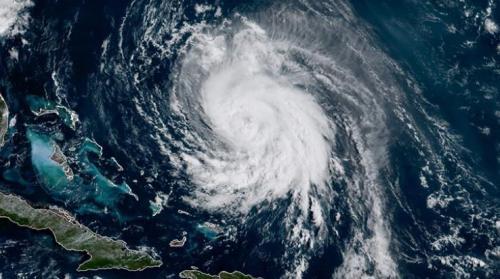Steve Bull's Blog, page 1312
September 16, 2017
Spanish Government Threatens to Seize Catalan Finances to Stop Referendum: Juncker in Hot Water
In its latest move to stop an October 1 independence referendum, the Spanish Government is Poised to Seize Catalan Finances.
Finance Minister Cristóbal Montoro said a mechanism had been approved for the state to take control of the autonomous region’s finances. Madrid is seeking to stop the Catalan government spending public money on its planned independence referendum.
If the deadline is not met, the central government will take over the funding of most essential public services in the region, Mr. Montoro said.
Catalan President Carles Puigdemont launched his campaign for a “Yes” vote on Thursday night in the town of Tarragona, telling a rally at a former bullring: “Vote, and in so doing bring light to darkness that has lasted for too many years.” The crowd shouted back, “Independence”, “We will vote” and “We’re not afraid”, AFP news agency reports.
Public finances are a particularly sore point for Catalans who for years have contributed more to the state budget than they get back in spending on public services.
More than 700 Catalan mayors who have agreed to help stage the referendum now face criminal investigation and police have been ordered by Spanish prosecutors to seize ballot boxes, election flyers and any other item that could be used in the referendum.
The separatists have promised to declare independence within days if, as expected, the Yes vote prevails at the referendum.
Spanish Government Rejects Dialog Request
The Telegraph reports Spain threatens to cut funding for Catalonia over the independence referendum.
The Spanish government on Friday dismissed a letter from Catalan leaders offering talks over their looming independence referendum as “a trap”, and announced it would intervene in Catalonia’s finances to ensure that “not one euro” of public money was used to fund the “illegal” vote.
…click on the above link to read the rest of the article…
Harvard University Bends the Knee to the CIA

Let’s get caught up real quick. On Wednesday, Harvard University announced that Chelsea Manning — who leaked evidence of U.S. war crimes in Iraq to Wikileaks and was incarcerated for seven years before being pardoned by Barack Obama — had been named a visiting fellow. I disagree with almost everything Obama did as president, but his pardoning of Manning is something I applaud. Then the CIA complained.
The complaint was swift and two-pronged. First, former acting director of the CIA, Michael Morell, wrote a letter by which he resigned in protest. Then the current CIA director, Michael Pompeo wrote a note of his own, which included support for Morell. Morell’s letter is absolutely incredible if you know some of this guy’s history. I suggest reading the entire thing.
Towards the end of the letter, Morell has the nerve to write:
“I have an obligation to my conscience — and I believe to the country — to stand up against any efforts to justify leaks of sensitive national security information.”
Let’s now take a moment to review this man’s well documented conscience.
Nice cufflinks by the way.
Remarkably, this is just the tip of the iceberg when it comes to Michael Morell. Let’s review some highlights from something I posted back in January.
Didn’t Trump’s own lawyer, Michael Cohen, meet in Prague with a Kremlin agent in August 2016? And isn’t this final proof of the ongoing secret liaisons between the tycoon and the tyrant? ‘Fraid not. But it is déjà vu. Fifteen years ago, Morell vetted and took to the White House, a preliminary report that 9/11 hijacker, Mohamed Atta, met with an Iraqi intelligence officer, Ahmad Samir, Al-Ani at the Iraqi embassy in Prague on April 9, 2001. Both reports have turned out to be bogus.
…click on the above link to read the rest of the article…
The NYT’s Yellow Journalism on Russia
Exclusive: The New York Times’ descent into yellow journalism over Russia recalls the sensationalism of Hearst and Pulitzer leading to the Spanish-American War, but the risks to humanity are much greater now, writes Robert Parry.
Reading The New York Times these days is like getting a daily dose of the “Two Minutes Hate” as envisioned in George Orwell’s 1984,except applied to America’s new/old enemy Russia. Even routine international behavior, such as Russia using fictitious names for potential adversaries during a military drill, is transformed into something weird and evil.

The New York Times building in Manhattan. (Photo credit: Robert Parry)
In the snide and alarmist style that the Times now always applies to Russia, reporter Andrew Higgins wrote – referring to a fictitious war-game “enemy” – “The country does not exist, so it has neither an army nor any real citizens, though it has acquired a feisty following of would-be patriots online. Starting on Thursday, however, the fictional state, Veishnoriya, a distillation of the Kremlin’s darkest fears about the West, becomes the target of the combined military might of Russia and its ally Belarus.”
This snarky front-page story in Thursday’s print editions also played into the Times’ larger narrative about Russia as a disseminator of “fake news.” You see the Russkies are even inventing “fictional” enemies to bully. Hah-hah-hah! The article was entitled, “Russia’s War Games With Fake Enemies Cause Real Alarm.”
Of course, the U.S. and its allies also conduct war games against fictitious enemies, but you wouldn’t know that from reading the Times. For instance, U.S. war games in 2015 substituted five made-up states – Ariana, Atropia, Donovia, Gorgas and Limaria – for nations near the Caucasus mountains along the borders of Russia and Iran.
…click on the above link to read the rest of the article…
Irma’s Aftermath: “For The First Time In 300 Years, There’s Not A Single Living Person On Barbuda”
Exactly one week ago, Prime Minister Gaston Browne surveyed the damage on his tiny Caribbean island of Barbuda and declared that Hurricane Irma had completely devastated the island and left 90% of all dwellings leveled. Browne went on to say that Irma’s “absolute devastation” meant that Barbuda was “basically uninhabitable” for the 1,800 people who called it home.
Now, according Barbuda’s Ambassador to the United States, Ronald Sanders, the entire island has been evacuated for the first time in 300 years leaving “not a single living person on the island of Barbuda.” Per the USA Today:
“The damage is complete,” says Ambassador Ronald Sanders, who has served as Antigua and Barbuda’s ambassador to the U.S. since 2015. “For the first time in 300 years, there’s not a single living person on the island of Barbuda — a civilization that has existed on that island for over 300 years has now been extinguished.”
“This was a huge monster,” he says. “The island and the people on the island had absolutely no chance.”
“We’ve had most of the people we’ve brought over to Antigua in shelters,” says Sanders. “We’ve tried to make living accommodations as good as humanly possible in these circumstances. Fortunately, we had planned ahead for this hurricane, and we had ordered supplies in from Miami and the United States before the hurricane hit.”




Follow
TTWeatherCenter @TTWeatherCenter
First images out of Barbuda from a Facebook broadcast live by ABS Radio & TV.
Widespread destruction has occurred on the island.
6:28 PM – Sep 6, 2017
As the following aerial footage from the BBC shows, not a single structure was left untouched by Irma’s 185 mph winds.
Meanwhile, even though Barbuda residents have been evacuated to safety on Antigua, Sanders says the mass evacuation has resulted in an unsustainable situation with massively overcrowded schools and unsanitary living quarters in government facilities.
…click on the above link to read the rest of the article…
September 15, 2017
High Ranking CIA Agent Blows Whistle On The Deep State And Shadow Government
 A CIA whistleblower, Kevin Shipp, has emerged from the wolves den to expose the deep state and the shadow government which he calls two entirely separate entities.
A CIA whistleblower, Kevin Shipp, has emerged from the wolves den to expose the deep state and the shadow government which he calls two entirely separate entities.
“The shadow government controls the deep state and manipulates our elected government behind the scenes,” Shipp warned in a recent talk at a Geoengineeringwatch.org conference.
Shipp had a series of slides explaining how the deep state and shadow government functions as well as the horrific crimes they are committing against U.S. citizens.
Some of the revelations the former CIA anti-terrorism counter intelligence officer revealed included that “Google Earth was set up through the National Geospatial Intelligence Agency and InQtel.” Indeed he is correct, the CIA and NGA owned the company Google acquired, Keyhole Inc., paying an undisclosed sum for the company to turn its tech into what we now know as Google Earth. Another curious investor in Keyhole Inc. was none other than the venture capital firm In-Q-Tel run by the CIA according to a press release at the time.
Shipp also disclosed that the agency known as the Joint Special Ops Command (JSOC) is the “president’s secret army” which he can use for secret assassinations, overturning governments and things the American people don’t know about.
FBI warrantless searches violate the Fourth Amendment with national security letters, which Shipp noted enables them to walk into your employer’s office and demand all your financial records and if he or she says anything about them being there they can put your supervisor in jail or drop a case against themselves using the “State’s Secret Privilege law.”
“The top of the shadow government is the National Security Agency and the Central Intelligence Agency,” Shipp said.
…click on the above link to read the rest of the article…
Does the Rising Price of Industrial Metals Herald the Beginning of the Next Commodity Super-Cycle?
Super-cycle theory
In a 2012 paper for the United Nations/DESA – Super-cycles of commodity prices since the mid-nineteenth century – Bilge Erten and José Antonio Ocampo review the literature on the theory of Commodity Super-Cycles and go on to suggest that the current cycle began in 1999. Here is an extract from their concluding remarks:-
The decomposition of real commodity prices based on the BP filtering technique provides evidence of four past super-cycles ranging between 30 to 40 years. For the total real non-fuel commodities, these cycles have occurred (1) from 1894 to 1932, peaking in 1917, (2) from 1932 to 1971, peaking in 1951, (3) from 1971 to 1999, peaking in 1973, and (4) the post-2000 episode that is still ongoing. These long cycles, which possess large amplitudes varying between 20 to 40 percent higher or lower than the long-run trend, are also a characteristic of sub-indices. Among the agricultural indices, the tropical agriculture exhibits super-cycles with much larger amplitude relative to non-tropical agriculture. The amplitudes of super-cycle components of real metal and crude oil prices are comparable to those of agricultural products in earlier parts of the twentieth century, but they become much more pronounced and strong in the latter parts of the century. The presence of co-movement among non-fuel commodity indices is supported by the correlation analysis across the entire sample, and a marked co-movement between oil and non-oil indices is present for the second half of the twentieth century.
Another important finding of the paper is that, for non-oil commodities, the mean of each supercycle has a tendency to be lower than that of the previous cycle, suggesting a step-wise deterioration over the entire period in support of the Prebisch-Singer hypothesis*. This finding applies especially to tropical and non-tropical agricultural prices, as well as metals in previous cycles.
…click on the above link to read the rest of the article…
New York City Is Within Hurricane Jose’s 5-Day “Cone Of Uncertainty”
In what were perhaps the two biggest news stories of the past month, Hurricanes Irma and Harvey devastated the American south, disrupting local industry, destroying homes and critical infrastructure and dumping millions of gallons of raw sewage onto city streets – leading to the most destructive beginning to hurricane season in years. Meanwhile, cosmopolitan Yankees looked on in horror (with perhaps a touch of smugness) as they watched their southern neighbors being paddled out of flooded Texas homes by national guardsmen, or marooned in the seemingly endless lines of traffic snaking out of southern Florida, northeasterners now have their own storm to worry about.
And now, according to the National Weather Service, those same onlookers might be forced to endure similar hardships thanks to Hurricane Jose, already on its way to becoming a category one storm. Meteorologists at the National Hurricane Center say a wide stretch of the eastern and northeastern US, from Maryland up through Cape Cod, is within Jose’s five-day “cone of uncertainty” – meaning that a fully fledged hurricane could make landfall in or around New York City, potentially dealing another crushing blow to the city’s infrastructure after the city’s subway system has not yet finished repairing the damage from Superstorm Sandy, which took place five years ago.
View image on Twitter

Follow
NWS New York NY ✔@NWSNewYorkNY
11AM Update on Jose: Much of our area is now in the 5 day cone of uncertainty. Be prepared for potential impacts Tuesday/Wednesday.
11:28 AM – Sep 15, 2017
Presently, the storm is headed northwest at 9 mph past North Carolina, and may bring one to two inches of rain to North Carolina’s Outer Banks on Monday, and heavier rains of two to four inches to Eastern Massachusetts beginning on Tuesday. The large waves from the storm could cause high surf and considerable beach erosion along the shores of the mid-Atlantic and New England coasts during this period, according to Weather Underground.
…click on the above link to read the rest of the article…
The Neoconservatives Have Declared War on the Realists

In recent years, I’ve increasingly suspected that when it comes to foreign policy, the realists offer some of the most sane observations.
These suspicions were confirmed earlier this year when after the election of Donald Trump, John Mearsheimer, one of modern realism’s current standard bearers, wrote in The National Interest that Trump should “adopt a realist foreign policy” and outlines a far better foreign policy agenda that what we’ve seen coming from Washington.
And what is this realist foreign policy? For Mearsheimer, some main tenets include:
Accepting that the US attempt at nation building in Afghanistan, Egypt, Iraq, Libya, Syria and Yemen “has been an abject failure.”
“Washington [should] respect the sovereignty of other states even when it disagrees with their internal policies.”
“Spreading democracy, especially by force, almost always fails.”
Understanding that “America’s terrorism problem … is fueled in part by the U.S. military presence on Arab territory as well as the endless wars the United States has waged in the greater Middle East.”
“The Trump administration should let local powers deal with ISIS.”
Recognizing that Russia poses no real threat to the United States: “Even if Russia modernizes its economy and its population grows in the years ahead — big ifs — it will still be unable to project significant military power beyond eastern Europe.”
“A Syria run by Assad poses no threat to the United States”
“The new president should also work to improve relations with Iran. “
“Encourage the Europeans to take responsibility for their own security, while gradually reducing the remaining U.S. troops there.”
Against Liberal Hegemony
There are some specific recommendations, but in a larger context, Mearsheimer is reflecting what has been building for years among realists led by Barry Posen, Mearsheimer, Stephen Walt, and Harvey Sapolsky, among others: an opposition to so-called “liberal hegemony”
…click on the above link to read the rest of the article…
Pennsylvania Will Run Out Of Cash Tonight, Leaving $860MM Of Bills Unpaid
As equity markets spike to all new highs with each passing day, the number of fiscal crises springing up within local and state governments around the country are reaching somewhat alarming levels, even if they’re being completely ignored by investors. As Reuters notes this morning, the state of Pennsylvania may become the latest example government failure when it runs out of cash later tonight leaving some $860 million worth of bills unpaid.
Pennsylvania could run out of cash on Friday, leaving $860 million of bill payments up in the air as lawmakers continue to argue over a revenue package that is more than two months overdue.
The state legislature passed a $32.5 billion spending plan on June 30, the end of the fiscal year and the deadline for the current year’s budget.
But it failed to agree on a revenue package to pay for those expenses, and the state has been borrowing money from its own short-term investment pool.
Treasurer Joe Torsella has said he will not issue more such loans and that the state’s general fund will likely run down to zero on Friday.
While Pennsylvania will be able to make some payments – including nearly $102 million of debt service costs due on Friday – it will not be able to pay all the bills that are due, said Treasury spokesman Mike Connolly.
An estimated $860 million of payments for various items, possibly including schools and Medicaid, could be delayed until the legislature fully funds the budget.

Not surprisingly, Pennsylvania’s funding crisis has only been exacerbated by a political dispute over whether the state’s budget gap should be filled with extra taxes and/or expense cuts.
…click on the above link to read the rest of the article…
Is An Oil Price Spike Imminent?

As the U.S. market begins its recovery from the double whammy served up by hurricanes Harvey and Irma, my earlier projections of where crude oil prices are headed have come true.
Just a little quicker than anticipated.
As I am writing this, WTI (West Texas Intermediate, the benchmark crude rate for futures contracts written in New York) has moved above $50 a barrel for the first time in over five weeks.
In fact, it’s up 6.1 percent in barely three days. Meanwhile, Brent (the equivalent and more globally used benchmark set daily in London) is approaching $56.
Two months ago, I said WTI would be at $52-$54 and Brent at $55-$57 by the end of September. Currently, WTI is within $2 a barrel of its predicted range and Brent has already reached it.
What’s interesting is the fact that this rise is taking place while much of the Gulf Coast refinery infrastructure either remains offline or is running at partial capacity.
After all, refiners form the bulk of crude end users. A reduction in refinery flow rates usually cuts into crude demand and, thereby, pushes prices down.
Despite that, oil prices are going up this morning. There are three reasons for this…
Ignore the News – Oil Demand is Rising
First, the crude oil balance we’ve talked about for some time has been coming in quicker than anticipated. That’s the case even with the rising U.S. production levels.
But remember, oil prices are set by global developments, not (primarily) by what happens in North America or Western Europe.
Both the International Energy Agency (IEA) in Paris and the U.S. Energy Information Administration (EIA) have recently reported that the balance between supply and demand should be realized in the first quarter of 2018. That is much earlier than previously forecasted.
…click on the above link to read the rest of the article…








